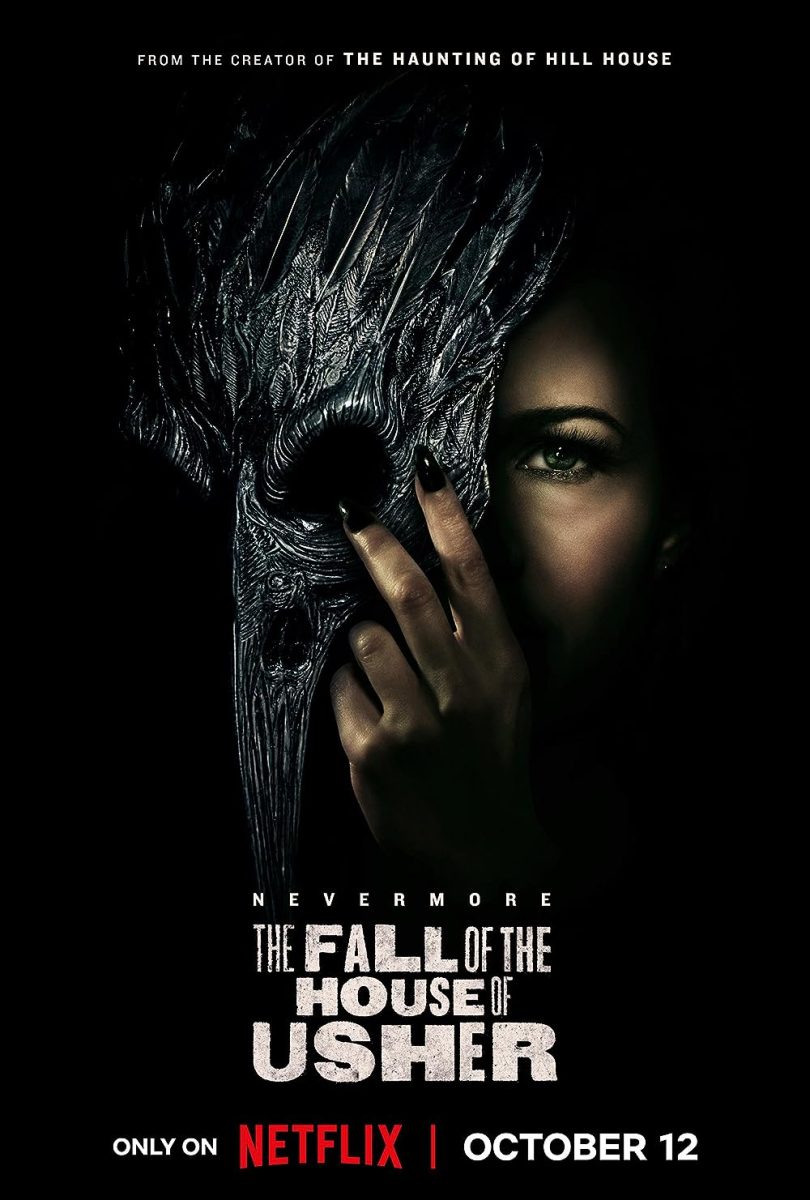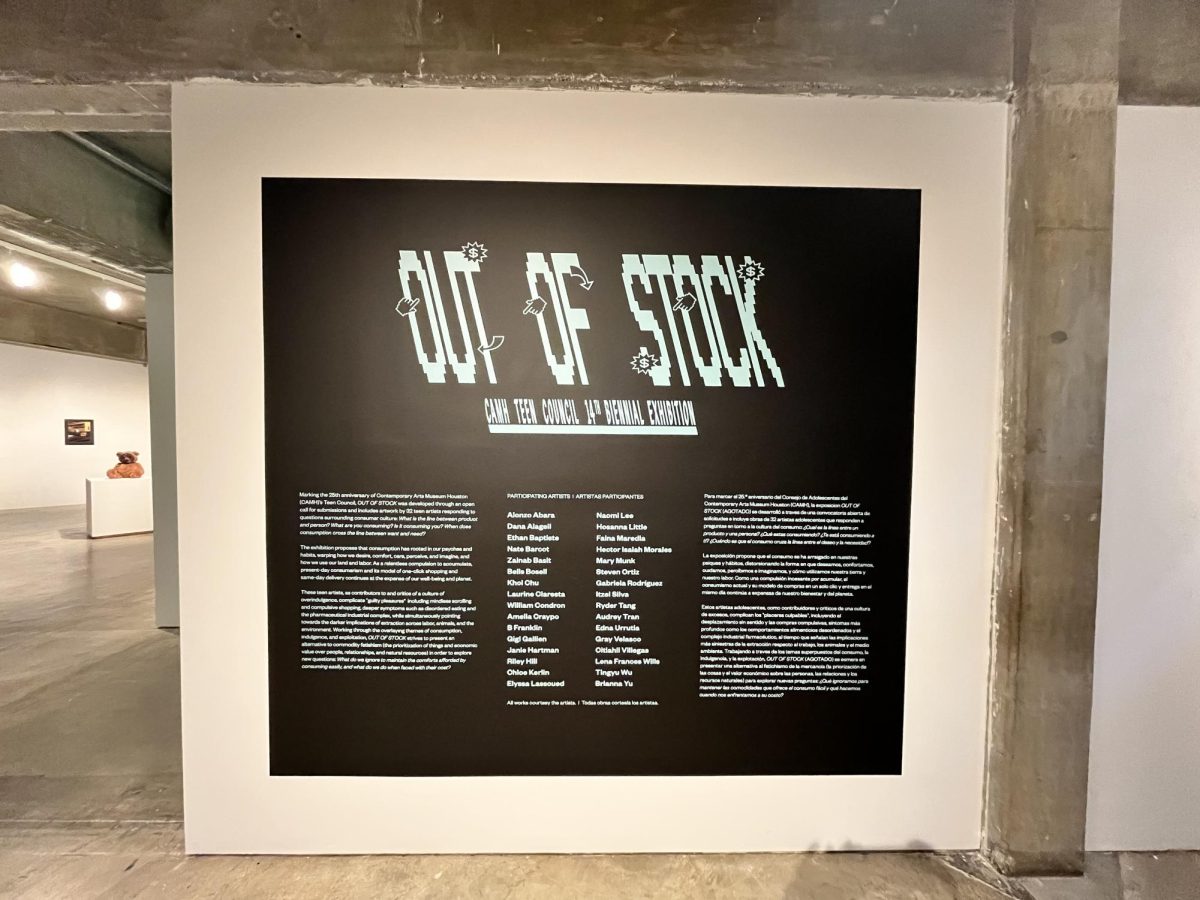Movies are better than books, and I’ll die on this hill. Ever since I was a child I’ve loved television, and even though I do read, seeing a story come to life has always been more special to me. But I know most people don’t feel that way.
The typical argument behind why books are better is because reading a story allows for the imagination to wander. You get to create an image in your head of what every character, setting, and world looks like. Don’t get me wrong, I do love books and what makes them unique, but seeing how great directors can interpret stories and turn them into a movie is bewildering.
Mike Flannagan’s “The Fall of the House of Usher,” a Netflix special and limited series based on the classic short stories and poems by Edgar Allan Poe, is a perfect example of how written works can be beautifully translated into a cinematic masterpiece. The short series was truly disturbing yet intriguing, sinister yet heartfelt, and most importantly, utterly terrifying, which is everything that Poe represents.
The series is more than just a few jumpscares and scary faces. Not to confuse readers, I enjoyed every part of the series, and the special effects and makeup were extremely well done, but that’s not what kept me up at night.
Disclaimer: From this point on, there will be spoilers.
The show begins in November, 2023. The main character, Roderick Usher, CEO of Fortunato Pharmaceuticals, a corrupt and greedy company, attends a funeral for the last 3 of his 6 children who have all died in the past two weeks. That following evening, Roderick invited C. Auguste Dupin, an assistant U.S. attorney who has been trying to expose Fortunato Pharmaceuticals for its crimes against humanity, to his childhood home. Dupin expects his confession to the offenses he has been accused of in court, but never did he expect that Roderick Usher would confess to the murder of all 6 of his children.
For the following episodes, Flannagan uses one of Poe’s classic short stories as the main adaptation for each episode. Rather than reiterating the original stories, he adapted them to the modern world he had created for this show. The series begins with the House of Usher, and within this first episode, he provides the context needed to set up the horrors that follow. We are introduced to the Usher siblings, their backstory, and the unsettling story behind how their parents died. But where Flannagan’s take on it shines through most, is how he created this entire series to take place in a singular night, with flashbacks sprinkled throughout.
Part of what I enjoyed most about this series was the clever and subtle references to some of Poe’s other, less-known poems and short stories. And as the story went on, I thought I knew what was coming next, that I had figured it out, but nope. The plot kept twisting and turning into a convoluted web of secrets that I couldn’t uncoil until every last piece of the puzzle came together. I pride myself on being able to think like a writer would, and pick up on subtle hints to guess the ending before it’s over. But this show kept me on the edge of my seat, and completely clueless. It was so refreshing to watch this show simply because it’s so unexpected and leaves you begging for more after every episode. I know I was, I binged it within 2 days, and I couldn’t stop thinking about it the entire night before the final few episodes.
It should be noted that each episode surrounding one of Roderick’s six children ended in a bloody spectacle of their inevitable death. I won’t go into detail, but I can assure you that if you can’t stand gore, this is NOT the series for you. This isn’t like some campy horror film with gross slasher scenes and tacky cliches. When there’s a death scene, it’s a mess. Like a car crash, you can’t help but watch the horror unfold, and as the episodes go on, it gets more addictive and even gorier than you previously thought possible. Each death scene is creative and unique to the character and their short story. Their screams will ring out, and the images of their mutilated faces and bodies will be plastered into your mind forever. Yet still, this is not what kept me awake at night.
When I first began to watch the show, I had expected it to be a good scare, fun to watch with family and friends, and interesting to see how Poe-like the series would be, as I’ve been a fan of Poe for some years now. Never did I expect to be sitting in my room, staring at the ceiling for hours, thinking about the bigger picture of this story.
“The Fall of the House of Usher” makes a commentary about the consequences of greed and the tragedies of the world. Roderick Usher willingly risked his bloodline even though they were all innocent, all for wealth, power, and the promise of committing crimes against humanity and leaving unscathed. In doing so, he sealed their fates to a cruel demise that proved such a deal was never worth it in the end. Extreme privilege and wealth aren’t what makes life fulfilling, and Roderick’s selfish pursuit of this meant millions of lives were taken, and countless tragedies and heartbreaks were made. All for his own personal gain. This is truly the most terrifying part of the show. Because nothing is more disturbing than a disturbed and ill-hearted human being.
Although I love movies, even more so than books, this still is one of the best text-to-screen adaptations that I’ve ever watched. If you are looking for a good scare, a goose chase with plot twists at every corner, mystery and drama that unfolds sinister secrets, and a mental challenge on the tragedy that is humankind, then this is the show for you.
And it’s not just this show either. There are plenty of good adaptations out there, lying in wait, hoping to be discovered. Some are even extremely popular as well, like many of the Pride and Prejudice movies based on the book by Jane Austen, or the hundreds of Romeo and Juliet adaptations from Shakespeare’s classic love tragedy. So take a chance, even if you think a movie could never be better than a book, you just might be surprised.















